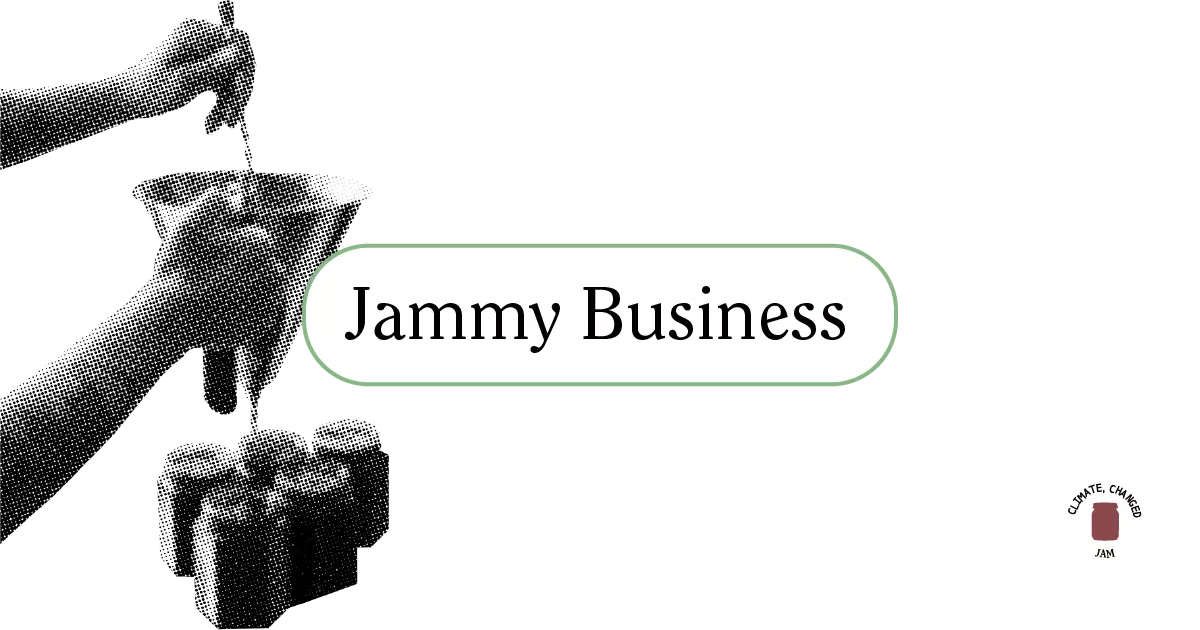JAMMY BUSINESS
Jam is yesterday’s fruit and today’s delight, thanks to the business of preservation. Yet what does it take to preserve a business in a dangerously warming world? For Part 2 of Currant's Climate, Changed series: Five jam producers across the U.S. share what it’s like to sustain an independent enterprise in a demanding society—and the imperative for compassion at every step of the supply chain.
A warm thanks to the producers who provided their insights over the summer of 2021:
• Ayako & Family’s Alessandra Gordon, Seattle
• BRINS’s Kristyn Swingle, Brooklyn
• INNA’s Dafna Kory, Emeryville
• Jamboree Jams’ Sara Levasseur, New Orleans
• Trade St. Jam Co’s Ashley Rouse, Brooklyn
Answers have been lightly edited for grammar and clarity. Images were shot in Ayako & Family’s production kitchen.
Missed Part 1? Read Save the Jam here.
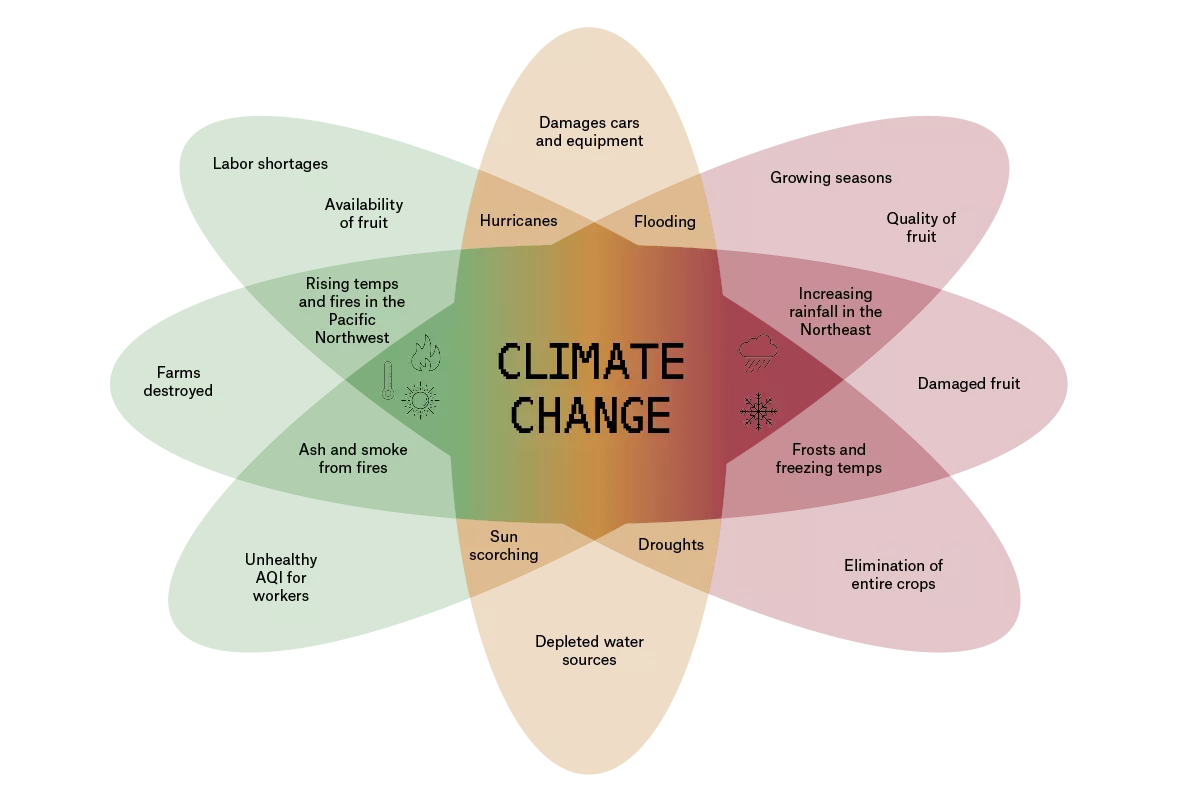
Note: The above infographic is based on producer anecdotes and may not be representative of all weather effects on fruit.
How do you imagine climate change affecting your business, if you don’t already see its impacts on your production?
Jamboree Jams: I think that unfortunately, climate change will eventually render my business impossible as New Orleans continues to sink and face intense weather events. In the more immediate future, I think it will make production more costly and difficult. With covid, the supply chain shortages and slow downs have been challenging. I could see the same disruptions happening as a result of climate change.
On the flip side I see preservation skills as being useful and having a place in our future that will be (and present that already is) marked by climate change. Jam isn't super nutritious due to the sugar content but pickles and other ferments are, and they are an interesting means of preservation that I am increasingly interested in. Either way, it's nice to work with a glut of fruit and preserve it so that it can be stabilized and enjoyed after those seasons have passed.
I think there's also an interesting community aspect to preservation. It puts me in touch and in sync with local farmers and connects me to neighbors who have extra fruit they don't want to go to waste. This is especially true of lemons. In the winter people give me all their lemons, which I juice, freeze, and add to all my jams throughout the year. There's also a project in New Orleans called Lobelia Commons that is working to create a 'network for autonomous food production and neighborhood survival' by planting fruit bearing trees where everyone can access them, encouraging foraging, etc. Community projects make me feel hopeful for the future, even in the face of climate collapse.
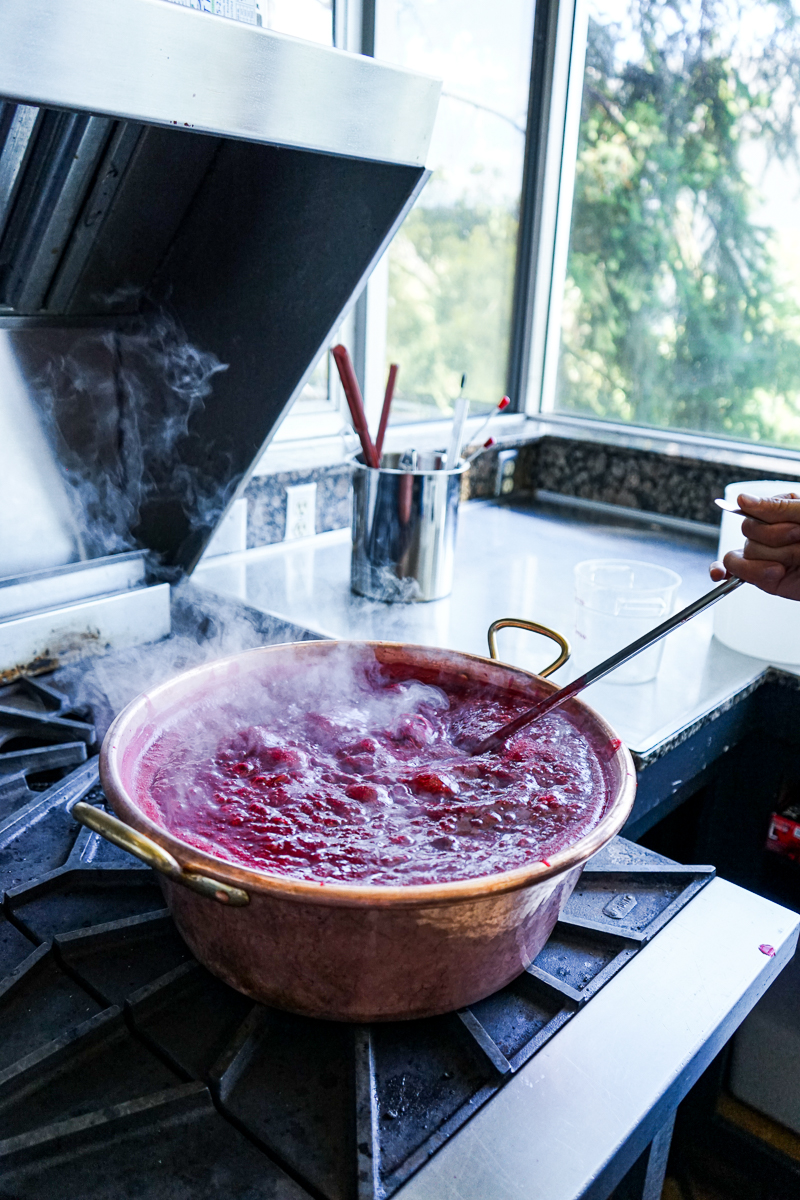
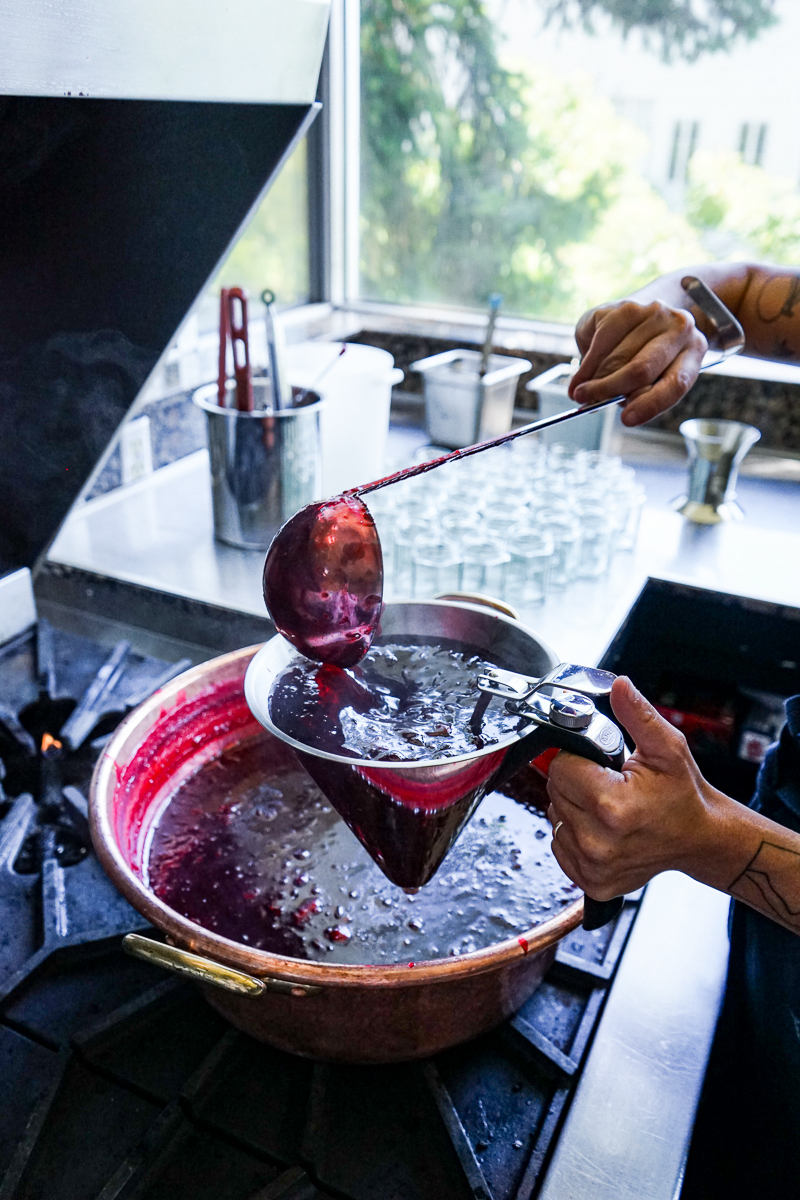
Trade Street Jam Co.: As of now, we haven't seen much of a negative effect from climate change. But because the procurement of quality fresh fruit is essential to what we do, we're well aware that it might in the future. When it comes to fruits and the various growth stages that they go through, climate change can delay maturity and ripening, cause poor color development, improper pollination, and more - all of which decreases the quality of fruits. And if fruit quality is decreased, then it stands to reason that the quality of our jam will also end up suffering. [Founder & CEO] Ashley often tells our customers, "You're not buying sugar; you're buying fruit". And when not compromised, "fruit speaks for itself".
Since 2020, we have seen big changes in availability. Not only is it harder to procure the fruit we need in large quantities, but the prices have skyrocketed. This makes keeping our COGS down a huge challenge as we try our best not to pass these costs onto our customers.
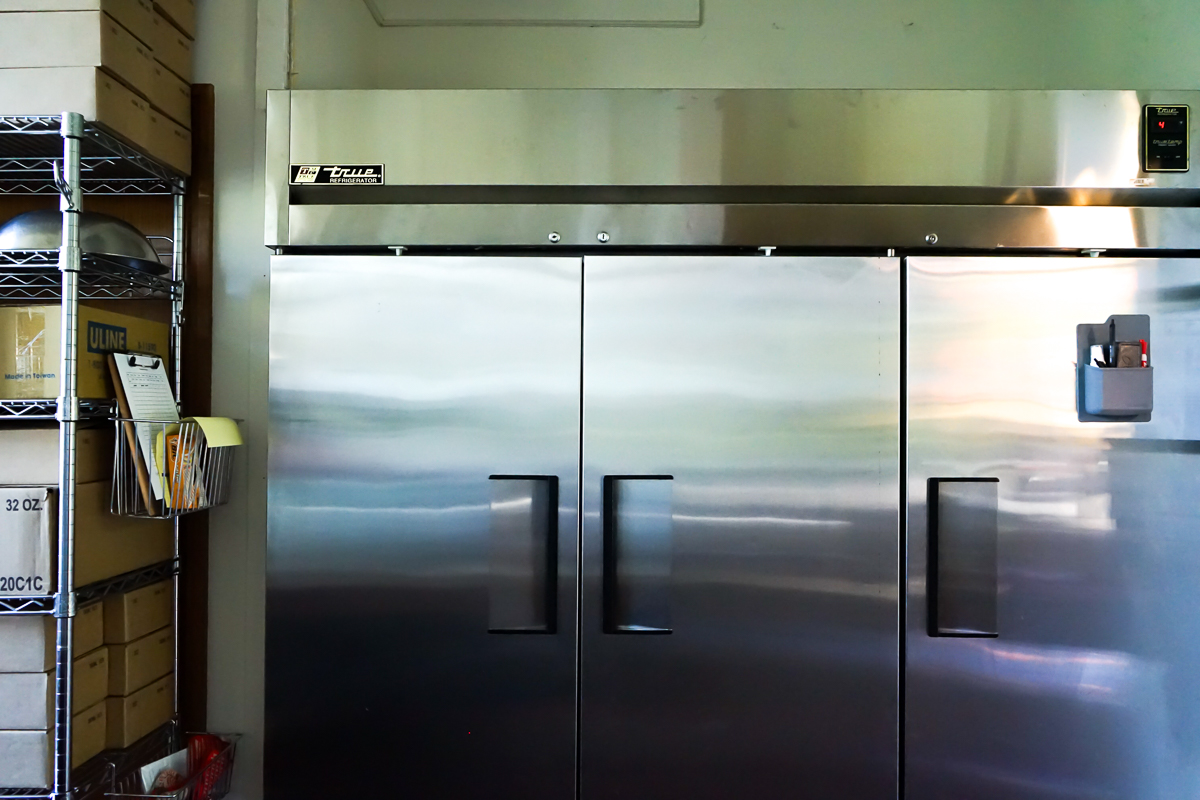
Ayako & Family: The climate crisis is really a symptom of a greater global issue, which is capitalism and the exploitation of resources and human labor. Of course, the climate crisis impacts very tangibly the fruit that we source, in that all of our fruit is hand picked by a single farm employee, an extremely skilled picker, but nonetheless, at over two tons of fruit a season, a task that takes a great amount of time. And time is often something that ripe fruit has very little of, especially when we are racing 110 degrees by midday. I am seeing more dropped fruit and fruit waste due to sun scorching and subsequent rotting because of the extreme heat and non-automated human powered processes that take care and time.
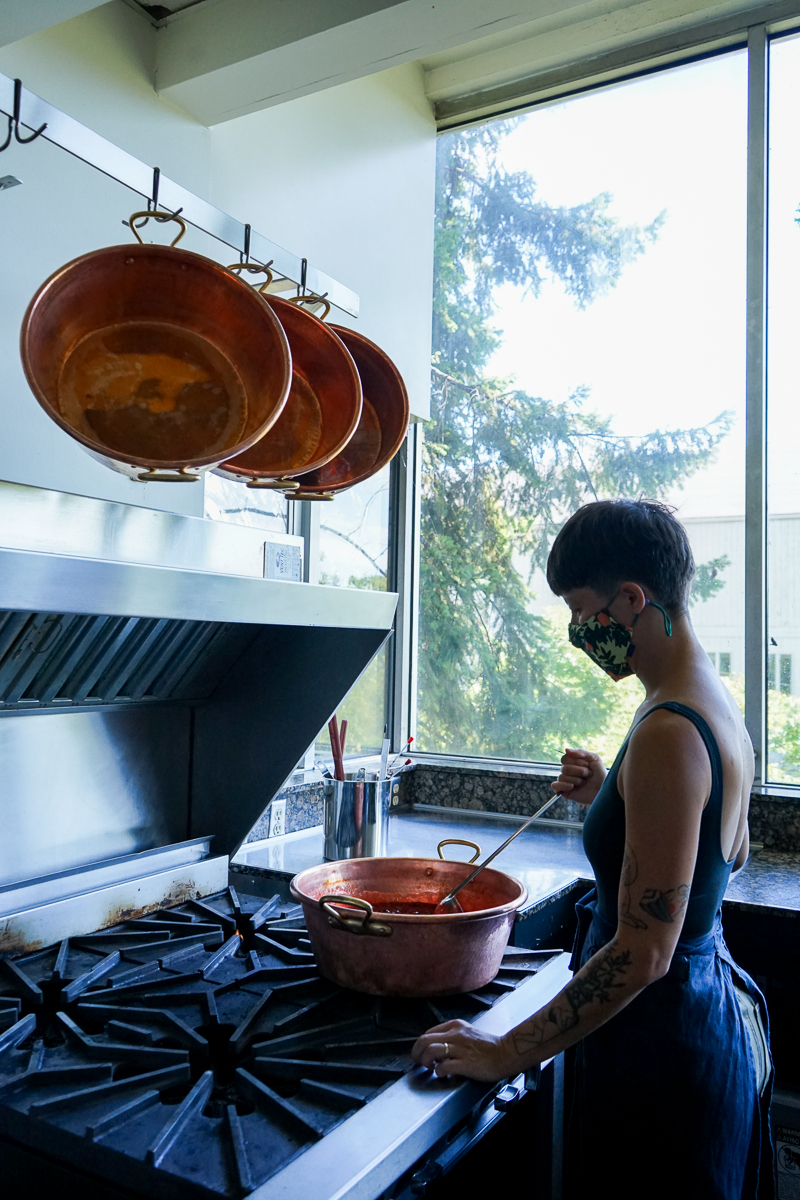
But I’m less worried about output and more about how the climate crisis has impacted our input. Because we are human powered, because we are still working through a pandemic and because I know closely the very real and vibrant folks working harder than ever before in more oppressive conditions behind each jar, I am noticing that as a business, we are expanding and slowing down our processes at the same time. We are creating more production cushion by paying more folks, creating more positions within the business, and then offering more equitable and sustainable wages so that they can each work fewer days. We are by volume producing and selling more this season, but nobody is working more than three days a week because I want to ensure folks are nurturing themselves outside of work in a way that helps them move through these huge environmental and societal shifts.
INNA: From the farm end of things: costs will continue to increase, availability of fruit will continue to be more unpredictable, crop failure will be more common - resulting in some jams being out of stock for longer.
From the kitchen cooking end of things: extreme heat and unhealthy air quality from fire smoke will impact our production capacity, we will need to shut down production more frequently to protect the health and well-being of our team.
Do your customers have expectations about which jams will be available and when?
Jamboree Jams: Yes, customers usually want all flavors available at all times. If I can't make a certain flavor one year due to an issue with that year's crop (pretty rare) people get upset. I think it just makes that variety more special once we are able to make it again.
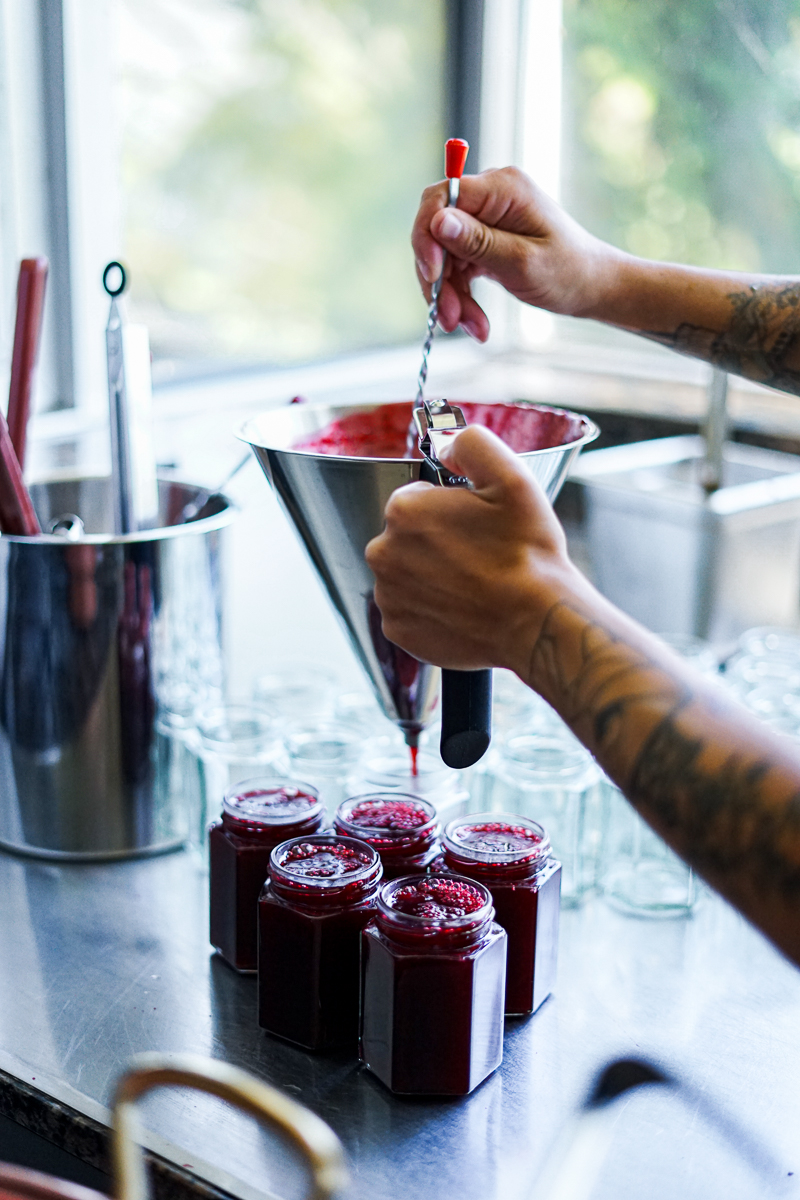
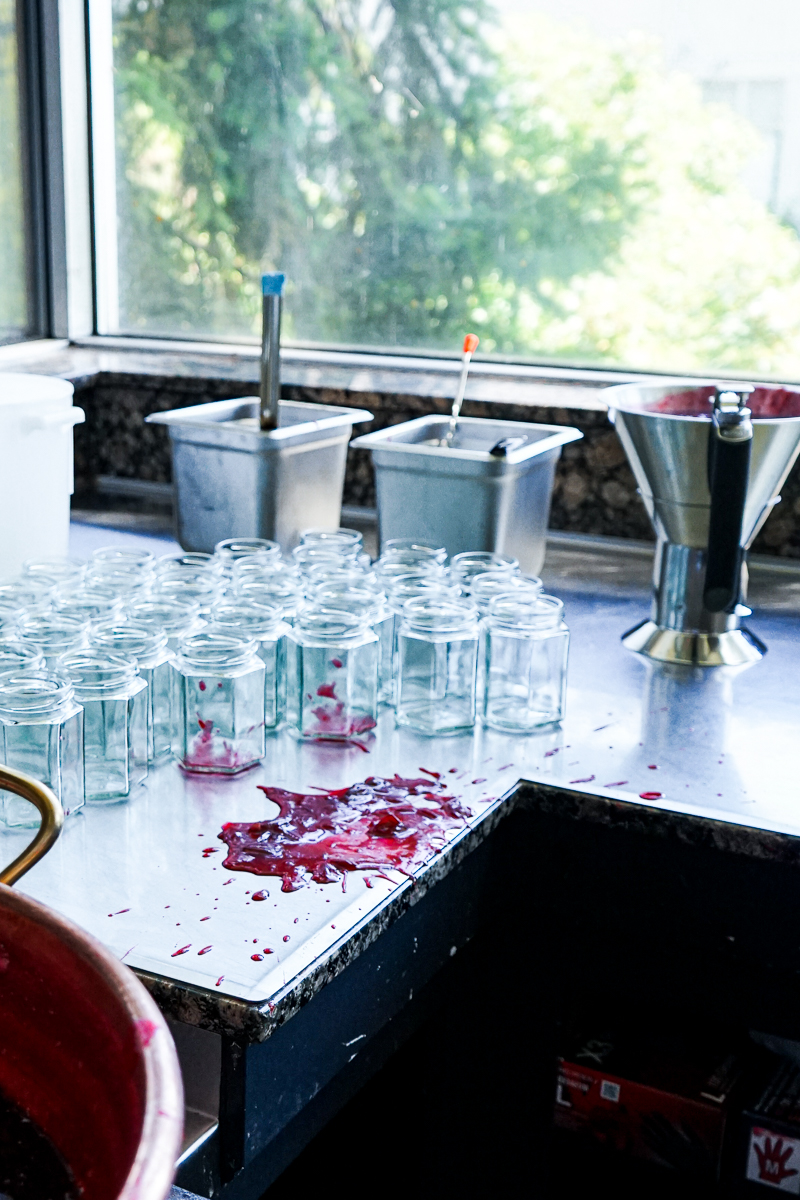
Ayako & Family: Part of our work as farm-partnered, fresh fruit, seasonal producers is to help educate our customer base on why jams may go in and out of availability from month to month. We are so conditioned to believe we should have access to all types of fruit and vegetables year round due to corporate farming and manufacturing that we continue to have those conversations about seasonality of product and also small by-hand manufacturing. We have no desire to increase our output simply to meet market demand if our integrity of product and relationships suffer. So much of this last year during the brunt of COVID-19, while we are still very much wading through its challenges, were spent negotiating how we could ensure all of longtime customers had access to our food, that our staff were safe and supported, without putting excess strain on our farmers, our suppliers, and our staff. Building reliability, loyalty, gratitude, patience, longevity, integrity all into the fabric of our business and its transactions is important, even if it takes being vulnerable and sharing our practices constantly.
INNA: Our customers understand that our production is seasonal, and that we make jams from fruit when those fruits are in season. We try to make enough to keep our jams in stock year-round, but due to the realities of limited availability of the fruit we source, many of our jams sell out.
BRINS: We do our absolute best to have all varieties available at all times to our customers, and they’ve grown accustomed to that.
Sign up for Currantly, our newsletter delivering original food stories and news analysis, with surprise treats of freshly curated recipes and product drops. Think of it as your monthlyish digest to deepen your stance on food issues and be creatively inspired.
Currant is an independent food media collective, sustained by our readers and global community. Sign up to join today.
For Climate, Changed: Writing and reporting by Sarah Cooke. Graphic design and direction by Clare Lagomarsino. Editing, web design, and photography by Vicky Gu.
Sign up for Currantly, our monthlyish newsletter delivering original food stories and news analysis, plus fresh curations of recipes and product drops.
© Currant Collective. All rights reserved.
Logo & type branding by Unspoken Agreement.
Site design by Skin Contact.
